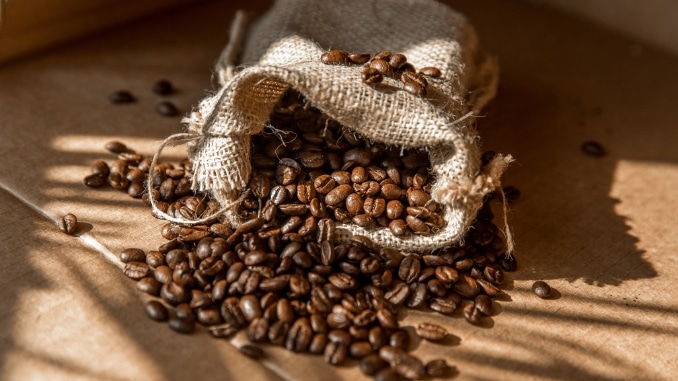You’ve rested, iced, stretched, and eased back into activity, but that nagging tendonitis pain just won’t go away—especially if caffeine is still part of your routine.
You’ve done everything right.
Rest the injured muscle. Iced it. Stretched it. Eased back into activity.
Still, it hasn’t healed the way you hoped.
You might be overlooking a surprising culprit: caffeine.
You’re at a loss. What else can you do to help this soft-tissue injury heal? There may be one more thing you haven’t thought of: cutting out the coffee and other sources of caffeine.
While your daily cup of joe might help kickstart your morning, it could also be slowing down your body’s natural healing process, especially when it comes to tendonitis, tendon injuries, and muscle recovery.
Coffee does have some health benefits. But does coffee delay injury recovery? When it comes to recovering from certain injuries like sprains, strains, tendonitis, bursitis, tennis elbow, and others, you may be best to leave it out of your diet. Here’s why.
Let’s dive into the science and unravel how caffeine and tendonitis may be more connected than you think.
The Double-Edged Sword of Caffeine

Caffeine is a well-known stimulant that offers a temporary boost in mood, energy, and focus.
It even delivers antioxidants, and when combined with caffeine, may help fight oxidative stress and support recovery from conditions like tendonitis.
Coffee has been linked to a lower risk of diseases like type 2 diabetes, Parkinson’s, and even some cancers.
According to Dr. Mark G. Cucuzzella, M.D., a Professor at West Virginia University School of Medicine and a recognized expert in sports medicine and injury prevention. He has spoken extensively about the role of nutrition in recovery:
“Caffeine can be a double-edged sword for athletes. While it may offer a temporary performance boost, it can also constrict blood vessels and delay tissue healing, especially in soft-tissue injuries like tendonitis.”
But here’s the kicker: too much caffeine may delay wound healing, especially when you’re battling acute pain, severe pain, or recovering from conditions like Achilles tendon issues or tennis elbow.
Does Caffeine Slow Healing?
Yes, it can. Here’s how:
- Caffeine constricts blood vessels, limiting oxygen and nutrient delivery to injured tissues, which can slow recovery. Limited blood flow means fewer nutrients reach your injury site, slowing the healing process.
- It impairs tissue development. Studies show caffeine interferes with cell proliferation and migration, crucial steps for healing tendons and forming new tissue.
- It can increase muscle tension and joint stiffness, which can hinder physical therapy progress.
When it comes to healing from repetitive movements or dealing with chronic inflammation, caffeine may not be your best friend.
Tendonitis Foods to Avoid

If you’re trying to reduce inflammation, eliminate pain, and support tendon healing, your diet plays a massive role.
Here’s what you should steer clear of:
- Processed and fried foods: They trigger inflammatory responses that hinder recovery.
- Sugary snacks and sodas: These spike insulin and trigger inflammatory pathways.
- Saturated fats: Found in fatty meats and full-fat dairy, can promote joint inflammation.
- Alcohol consumption:Caffeine can dehydrate tissue and impair immune function, which may slow recovery from tendonitis.
- High caffeine intake: Consuming large amounts of caffeine can delay healing in ligament injuries, tendon injuries, and soft tissue damage.
What You Should Be Eating for Tendonitis

Now let’s fuel your recovery the right way.
Here are powerful foods that support tendon health, speed healing, and reduce joint pain:
- Bone broth: Rich in collagen, it supports tendon strength and tissue development.
- Lean proteins: Chicken, fish, and tofu are essential for forming tissue and repairing damaged muscle.
- Whole grains and citrus fruits: They provide sustained energy for recovery and offer vitamin C, respectively, which are essential for collagen production and tissue repair.
- Glucosamine sulfate and chondroitin sulfate: These compounds help rebuild cartilage and tendons and are often recommended for combined treatment with physical therapy.
- Anti-inflammatory foods: Think berries, leafy greens, fatty fish, turmeric, and ginger. They provide anti-inflammatory effects that decrease pain and promote healing.
- Don’t forget to drink plenty of water. Hydration supports blood flow, nutrient delivery, and immune system balance.
Tips to Speed Up Recovery Naturally

If you’re feeling stuck in your recovery from Achilles tendinopathy or any soft tissue injury, try these supportive strategies:
1.Be patient with physical activity
Returning to workouts too soon can reinjure healing tendons. Listen to your physical therapist and ease back gradually.
2. Avoid aggressive stretching.
Gentle stretches help maintain flexibility for those with tendonitis, especially when paired with reduced caffeine intake to avoid aggravating the condition.
3. Strengthen weak muscle groups.
Weakness around the injury site contributes to the underlying causes of pain. Target those muscle imbalances with focused exercises.
4. Stay active—smartly.
Engage in a low-impact activities like yoga or swimming to enhance circulation, which promotes healing and reduces stiffness.
5. Use therapies strategically.
Treatments such as ice packs, nonsteroidal anti-inflammatory drugs (NSAIDs), and extracorporeal shockwave therapy can help reduce inflammation and pain during recovery.
Coffee Has Many Health Benefits

You’ve probably heard of the ways that coffee and tea can benefit your health. Both have powerful antioxidants that help fight common diseases like type 2 diabetes, heart disease, and cancer.
The caffeine in the beverages has also been linked with improved mood, focus, energy, and a lower risk of Parkinson’s disease, stroke, kidney stones, some forms of cancer and dementia.
There are some potential downsides, including coffee’s acidic nature. It can be hard on sensitive stomachs.
Because of its caffeine content, coffee can also cause certain side effects in people who drink too much.
These may include anxiety, jitters, insomnia, nervousness, frequent urination, stomach upset, rapid heart rate, and addiction, which can lead to withdrawal symptoms and fatigue.
How much is too much? Research shows that about 4 cups a day seems safe for most healthy adults.
Studies have shown that caffeine can affect different people differently, so it’s an individual thing, but some people will experience negative effects sooner than others and may feel better drinking smaller amounts or none at all.
However, sensitivity isn’t the only thing to consider when it comes to consuming coffee.
If you’ve recently suffered an injury and you’re trying to heal, you may want to switch to caffeine-free herbal tea.
Caffeine Affects Blood Flow

Research has indicated that caffeine may delay wound healing.
There are many mechanisms by which it may do that, so let’s look at each one. We’ll start with its effect on blood flow.
When you injure yourself, that area requires a good supply of blood to heal. Blood brings in oxygen and nutrients, which are both essential for wound repair.
If your blood flow is limited for some reason—such as from excessive caffeine consumption or underlying issues like tendonitis—it will take longer to recover from your injury.
Caffeine has a direct effect on blood flow. It constricts blood vessels, which temporarily raises blood pressure while reducing the blood available to your wound.
In a 2009 study [1], scientists found that it reduced cerebral (brain) blood flow by an average of 27 percent with little difference between moderate and high users.
Previous studies showed similar results. In one, scientists found that a 250-milligram dose of caffeine reduced cerebral blood flow between 22 percent and 30 percent.
Even more, telling is how caffeine affects blood flow during exercise.
In a 2013 study [2], researchers acknowledged that regular ingestion of caffeine caused the heart to work harder to pump blood through the body.
Still, even with the heart’s extra efforts, caffeine impaired blood flow, most notably during exercise.
So, you’re doing all you can to heal that wound, but then you go to exercise, and the injured area may not get the blood it needs not only to operate as it should but to continue to heal.
Instead, the exercise may set you back.
Caffeine May Inhibit Wound Healing and Make You Stiff

If your injury involved a cut or tear, again, caffeine may not be a good idea.
In a 2014 study [3], researchers tested the effects of caffeine on skin cells and found that it restricted cell proliferation and cell migration.
They then tested it on a model of human skin and found the same results, concluding that caffeine could inhibit wound healing and skin repair.
They also found that the more caffeine consumed, the slower the wound healed. Therefore, coffee delays injury recovery.
Caffeine may also make you stiff. There is evidence linking it to muscle tension and reduced flexibility, which can slow any physical therapy you may be undergoing to try to heal an injury.
Caffeine is, by nature, a stimulant.
It stimulates the nerves that control muscle activity, and depending on how much you consume and how your body responds, it may cause the muscles to contract and stay that way, increasing tension and tightness.
Many injuries, such as tendonitis, can occur due to tight and imbalanced muscles, and excessive caffeine intake may contribute by increasing muscle tension or interfering with recovery.
They shorten and limit movement and lack the suppleness you need to regain strength and endurance.
They may also seem unable to relax fully, staying contracted or partly contracted for an extended period, leading to spasms, strains, muscle pulls and tears, and, ultimately pain.
Regular consumption of coffee or other sources of caffeine can lead to muscle stiffness indirectly, as well.
If you’re going through a stressful period in your life and using caffeine to maintain a difficult schedule, it could be contributing to anxiety, insomnia, and stomach upset, which can make stress worse, leading to additional tight muscles.
Can Coffee Increase Inflammation or Dehydrate Tissues?

Does coffee delay injury recovery? When it comes to other possible effects of caffeine, the evidence isn’t quite as clear.
We know that injuries typically hurt because of inflammation, so we seek to reduce that inflammation through rest, ice, and anti-inflammatory medications.
Might coffee go against our efforts and increase inflammation? One wouldn’t think so initially. Studies are showing the opposite — that coffee and caffeine may help reduce inflammation.
Harvard Health lists coffee as a potential anti-inflammatory beverage because of the polyphenols and caffeine in it, which may offer benefits for conditions like tendonitis.
In a 2017 study [4] from Stanford University School of Medicine, scientists found that the natural increase in inflammation associated with aging was reduced in older people who drank coffee.
However, then there are other studies showing the opposite.
In 2017 study [5], researchers analyzed 15 studies, some involving coffee, and some caffeine, and found that while coffee seemed to help reduce inflammation, caffeine did not.
Instead, it seemed to increase it in some circumstances.
In an earlier study, researchers compared coffee drinkers with nondrinkers and found a relationship between moderate-to-high coffee consumption and increased inflammation.
Then, there’s the issue of dehydration. For years, we were told that coffee and caffeine were diuretics, sapping water from our systems, which would be bad for our muscles and other soft tissues.
The Mayo Clinic notes that while caffeinated drinks may have a mild diuretic effect, increasing the need to urinate.
They don’t appear to increase the risk of dehydration.
Other more recent studies have found similar results, showing that, particularly in those who regularly consume coffee, it is not associated with poor hydration.
How to Help Muscle and Other Soft-tissue Injuries Heal Quickly
Considering the evidence we have so far, if you’ve been trying to heal from an injury and it’s not going well, you may want to cut back on coffee and other caffeinated beverages for a little while to know if coffee delay injury recovery, and just to see if it helps.
Meanwhile, here are a few tips to encourage the healing you need.

1. Don’t Return to Full-blown Workouts Too Soon
This is one of the most common reasons an injury doesn’t heal well. We simply don’t give it enough time.
Soft-tissue injuries can be deceiving, in that they often become less painful rather quickly before the tissues have completely healed.
We feel better, so we head back out on the track, and soon we’re dealing with the same injury all over again, or perhaps even a worse tear.
Always start back into your workouts gently and carefully, gradually building back up to where you were.
2. Avoid Stretching Too Aggressively
Particularly if you have a tear in the muscle or ligament, aggressive stretching too soon can do more harm than good.
The damaged fibers are slowly beginning to heal and reattach to each other — a fragile process in the early stages.
Aggressive stretching during this time, especially in cases of tendonitis or when caffeine intake is high, can lead to further tears.
Start gentle, and check with your physical therapist to find out when you can push it a little farther.
3. Strengthen Any Weak Muscles
Often soft-tissue injuries occur not only because of muscle tightness but muscle weakness.
It’s easy to avoid those calf raises or Pilates routines when we’re enjoying our daily runs.
Make sure you know which muscles need to be strong to support your chosen activity and get back to strengthening those while recovering from an injury.
4. Stay Active in Other Ways
If you’ve been sidelined from your favorite form of exercise because of an injury, that’s not an excuse to become a couch potato.
Staying active can help keep your other supportive muscles going while keeping your overall body in good shape.
Talk to your physical therapist and see what else you might do in the meantime.
Good options often include swimming, walking, yoga, strength training (with consideration of your injury), Pilates, tai chi, and others.
5. Eat a Healthy Diet
Recovering from an injury, especially something like tendonitis, isn’t just about avoiding coffee or caffeine.
You need to give your body and tissues the nutrients they need to heal.
Focus on anti-inflammatory foods ― most fruits and vegetables ― protein intake, and healthy fats, and limit or cut out altogether high-sugar treats and processed meats.
Final Thoughts: Should You Ditch the Coffee?
Caffeine’s impact on blood flow and inflammation makes it worth moderating during tendonitis recovery.
While caffeine isn’t inherently harmful, it can contribute to:
- Reduced blood flow
- Slower tendon healing
- Increased muscle stiffness
- Conflicting effects on inflammation
If your pain hasn’t decreased or you’re experiencing a delayed recovery, consider reducing your caffeine intake temporarily.
Pair this with a healthy diet, regular exercise, and the right therapies to optimize your body’s ability to heal.
You might be surprised by how much faster you bounce back.
Ready to slim down and heal in just 7 days? Download our guide to the Best Foods that Rapidly Slim & Heal now!
FAQ’s
Does caffeine affect tendon healing?
Yes, caffeine can negatively affect tendon healing by constricting blood vessels, reducing blood flow, impairing cell repair, and potentially increasing inflammation in some cases.
Is moderate coffee consumption safe during tendonitis recovery?
Moderate coffee consumption may be okay for some people, but reducing or avoiding caffeine during recovery can support better blood flow and faster healing, especially if you’re experiencing delayed recovery or chronic inflammation.
What should you avoid if you have tendonitis?
Avoid processed foods, fried foods, sugar, alcohol, saturated fats, and excessive caffeine. These can increase inflammation and slow down tendon healing.


